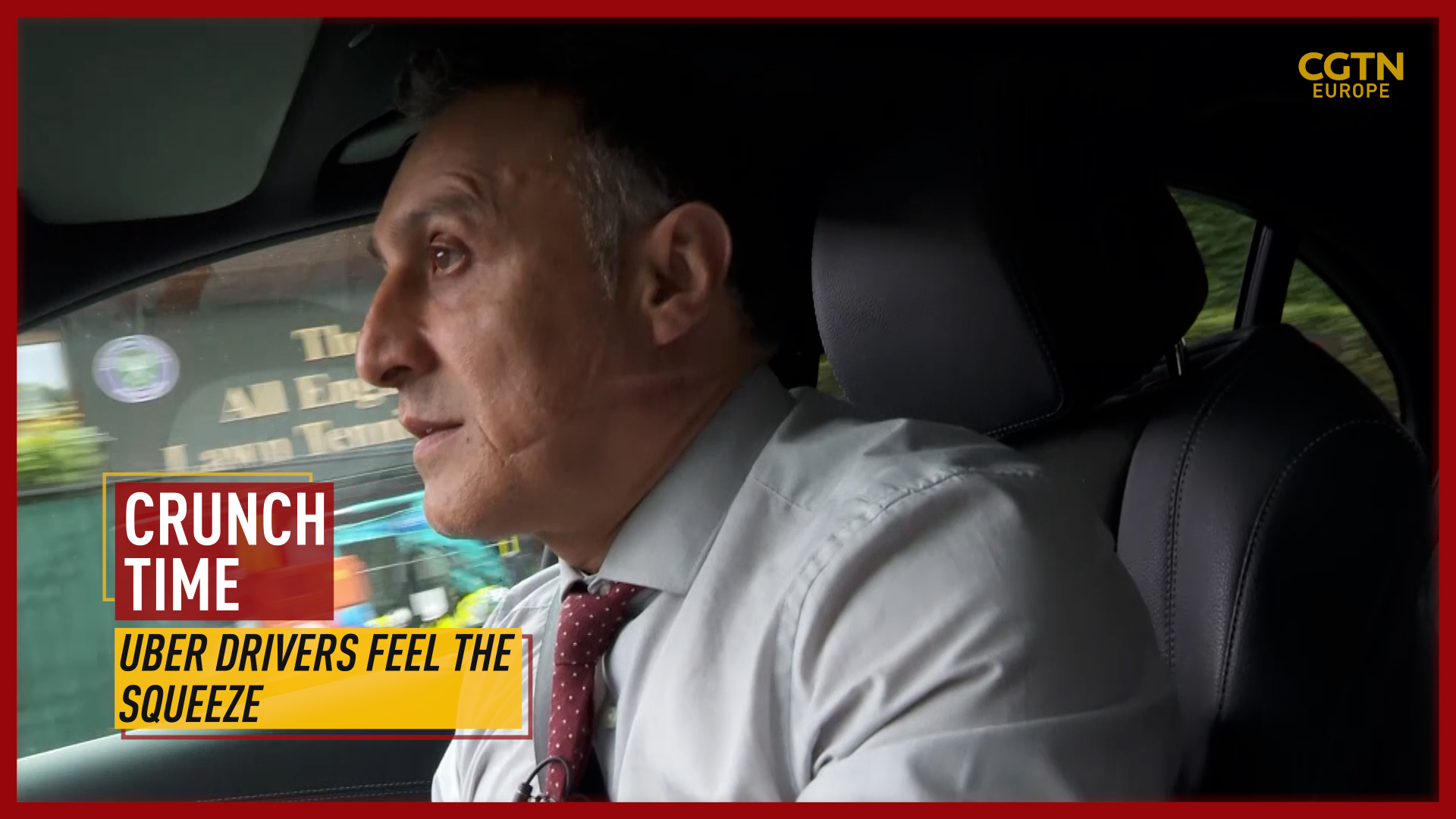02:40

As the cost of living rises sharply in the UK, thousands are trying to make ends meet by driving for Uber. The company told CGTN Europe it has seen "more than 10,000 new drivers" sign up in recent months.
But as more people turn to the flexibility of the gig economy, there are concerns about Uber's business model. The App Drivers and Couriers Union (ADCU) – which represents thousands of workers using the platform – said "drivers are being exploited and working long hours for very little pay."
For many workers using Uber and similar ride-hailing apps, business is booming.
As demand for travel dropped off during the COVID-19 pandemic, many found work elsewhere, leading to a shortage of drivers last year. But demand has bounced back sharply in recent months, meaning drivers like Idrees Jeffery are busier than ever.
READ MORE See CGTN's "Crunch Time" special for reports on how the cost-of-living crisis is affecting people across Europe
He's been a private taxi driver in London since the early 2000s. But while it's easier to find customers, costs are also rising.
Inflation in the UK is at a 40-year high of 9.4 percent and forecast to climb above 13 percent in the coming months, meaning goods are more expensive. Petrol prices have also hit record highs this year, driven by the war in Ukraine.
"The cost of fuel is increasing, service for the car has increased, the tires, cleaning the car – it's all gone up," says Jeffery. "All I can say is all the costs have gone up around 50 percent."
Working conditions criticized
Others are worried that working conditions for app-based drivers are not offering enough protection. Yaseen Aslam is president of the ADCU, which took Uber to court and won in a landmark case in February last year, when the UK Supreme Court ruled drivers in London were not "self-employed" but entitled to benefits such as holiday pay and pensions.
"A lot of drivers even today are making below the minimum wage and that can't be right," says Aslam. The union is demanding a minimum of around $3 per mile for drivers, significantly above current rates. And crucially, it wants its members to be paid for the time they are in their cars, rather than when they're actively engaged on the app.

Idrees Jeffery is one of many Uber drivers working long hours. /CGTN
Idrees Jeffery is one of many Uber drivers working long hours. /CGTN
The UK ride-hailing market has become more competitive in recent years, with Uber facing tough competition from the likes of Estonian start-up Bolt and India's Ola.
The ADCU claims the 25 percent commission fee charged by Uber for each journey means many of its members are unable to make ends meet, unless they work close to 70 hours a week: "It's dangerous for public health because you've got drivers that are being exploited and they're humans as well, they need basic rights," says Aslam.
READ MORE
The story of a Mariupol survivor
Fulfilling a promise… 1,500 years late
Swimming in Odesa's catacombs
Uber rejected claims drivers in the UK were being mistreated and said they are making "more than ever," with earnings on the platform up around 30 percent compared to pre-pandemic levels.
"In the first quarter of 2022, they earned on average £29.72 per hour (approximately $36), including holiday pay, when engaged on the app," a spokesperson told CGTN Europe.
Following last year's court ruling, the U.S. firm has paid out almost $450 million in Britain in holiday pay and pension contributions.
Amid a worsening economic outlook in the UK, the appeal of earning flexibly through apps like Uber is growing. But on a journey around London, Jeffery wonders whether he's spending too much time in his car: "I work 60-65 hours a week and seven days a week. I think it's a lot. Because the cost of living has gone up, it's impossible to work less than that."

